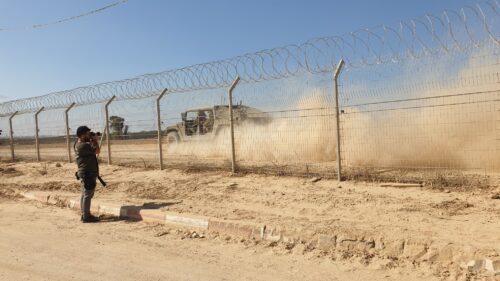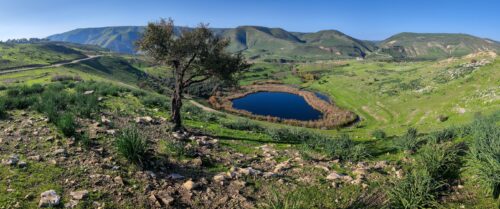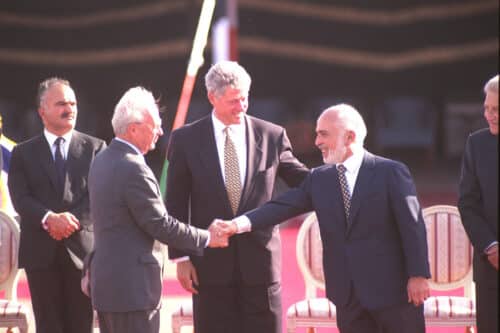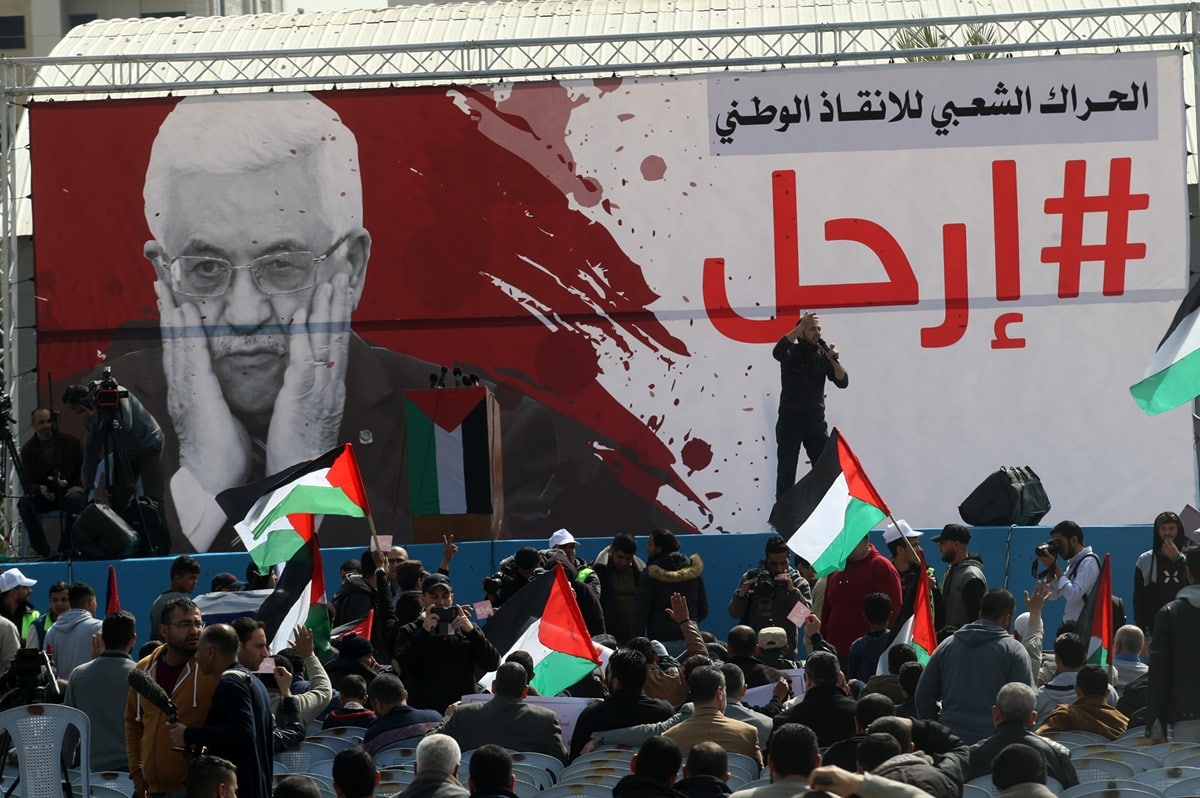
Chairman of the Palestinian Authority Mahmoud Abbas, known as Abu Mazen, is turning 89 this month. Even before the open and pressing question of his successor as the chairman of the PA, his rule is already leaving the Authority in disarray. “The PA is in a state of collapse and dilapidation,” says Lt. Col. (res.) Baruch Yadid. “It doesn’t pay salaries to its employees; the entire Samaria region is no longer under its control; it doesn’t manage to operate as a political entity, and in regards to the Authority’s future – that’s the big question”.
The Lost Generation of the PA
Baruch, in an article you published last April, you mention a survey according to which most Palestinians view the PA as dead weight and demand its dismantling. Is that still true?
“True. But not a single survey – but a series of poles that found that a significantly high number of Palestinians – sometimes as high as 60 or 80 percent of them – view the Authority as a burden and do not perceive it as a historical achievement. They understand that aside from security coordination that serves mainly the IDF – the Palestinian Authority does not serve the Palestinian dream. It is on the background of this unrest that Hamas was able to garner such widespread sympathy”.
Even today, after the war, the organization enjoys such broad support?
“It’s hard and perhaps even impossible to know how much support Hamas currently has in Gaza, however, in Judea and Samaria it is very well supported. The buildup of Hamas in Judea and Samaria on the expense of the PA is a trend that was evident in all of the surveys on the topic from the past five-six years, although one must take Palestinian surveys with a grain of salt as they often distort the data. At any rate, these surveys clearly show what the world already knows: the Palestinian public harshly criticizes Abu Mazen, who originally was elected for a term of only five years, but after nearly 20 years is still in power, without ever having held elections for the presidency of the PA or its parliament”.
Who will step in to fill the vacuum left by the PA?
“At the present, there are some 40 organizations of Hamas, PIJ and al Aqsa Martyrs Brigades, particularly in the Samaria region and further north. These are young people, the group of 15–30-year-olds, which in regards to the PA are a lost generation. They were born after the Oslo Accords and hate the Authority because nothing in their lives had improved. They view Hamas and the military path as the realization of their ideological aspirations. Add to that the money that Hamas and Hezbollah pour into the region”.
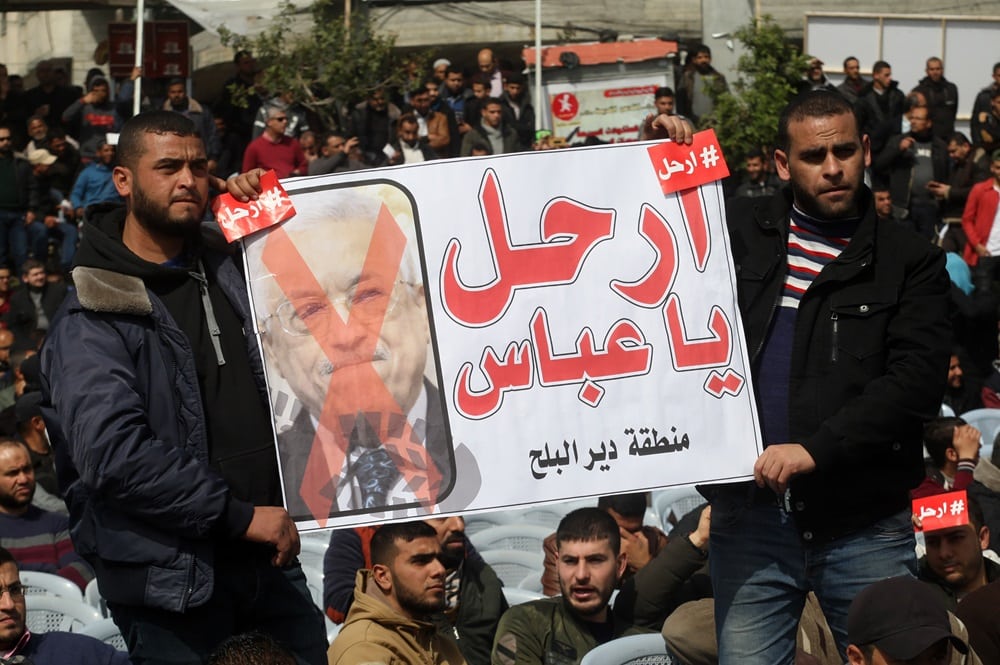
How can the PA restore the public’s trust?
“Fatah members as well as Abu Mazen know that that in the 2006 elections, Fatah got more votes than Hamas, but the votes were distributed among the factions that comprise Fatah – nowadays it has three and a half leaders and several organizations and this is its greatest problem and the reason Hamas won the elections at the time with a landslide. So the solution is a reform, and everyone is pressuring Abu Mazen to introduce reforms; The Egyptians and Saudis also demanded that the PA undergo reform, but Abu Mazen has not complied due to fatigue and conservatism and his unwillingness to open the government to additional players”.
Why has he not complied with the demands?
“Most likely he hasn’t the energy to make reforms and open up the system and prefers to lean of the current situation. He prefers to preserve the current state rather than take risks. Everyone surrounding him is waiting for him to leave. He is more a token leader that a leader in effect. However, it is unclear what the day after will bring in the PA – whether he will be succeeded by another element in Fatah, if his moderate line will remain, or whether his successor will be Marwan Barghouti, who is very close to Hamas and very militant, or another leader that would collaborate with Hamas, and if elections will be held – in the event that Hamas takes over the Authority”.
The Return of the Saudis to the Abraham Accords
So many open questions. And what are the implications for Israel?
“The conclusion is that, in my opinion, Israel cannot rely on the PA as a viable factor. I believe that the Egyptians and Saudis also realize this. Everyone – including the Americans and Emiratis – are demanding that Abbas carry out the reforms in order to prepare the ground for his successor, and after he steps down, everything will be open to a new reality, and not necessarily a positive one.”
How should Israel act at the moment?
“It should maintain full security control of Judea and Samaria and Gaza, while at the same time cultivating a Palestinian civilian apparatus that will undertake the care of the population. For the time, under Abbas, this is happening, but there is no guarantee that it will be so in the future, and certainly there is no guarantee that it will be so in the long term. Israel should also try to expand the Abraham Accords, including interim agreements regarding the Palestinian Authority.”
That means agreeing to a Palestinian State, right?
“It will be necessary to give the Sunni states a horizon of some two-state solution, but this doesn’t have to happen at this moment, and is the biggest political challenge, since the Saudis, for example, declare morning, noon and night that without a Palestinian state, there will be no normalization. Although the messages Israel is receiving are different, this is the general direction”.
“At this stage, the model should be one in which Israel does not forgo the two-state option – i.e. does not annex Judea and Samaria and does not dismantle the Palestinian Authority. This would allow Saudi Arabia to enter an agreement. But the implementation of the solution itself will depend on a long-term agreement and will also be subject to changes. We’re talking about a period of 10 to 20 years, during which the Palestinian street will have to undergo significant change, and it also depends on the decline of Iran’s influence. Some sources in the Gulf states say it’s possible.”
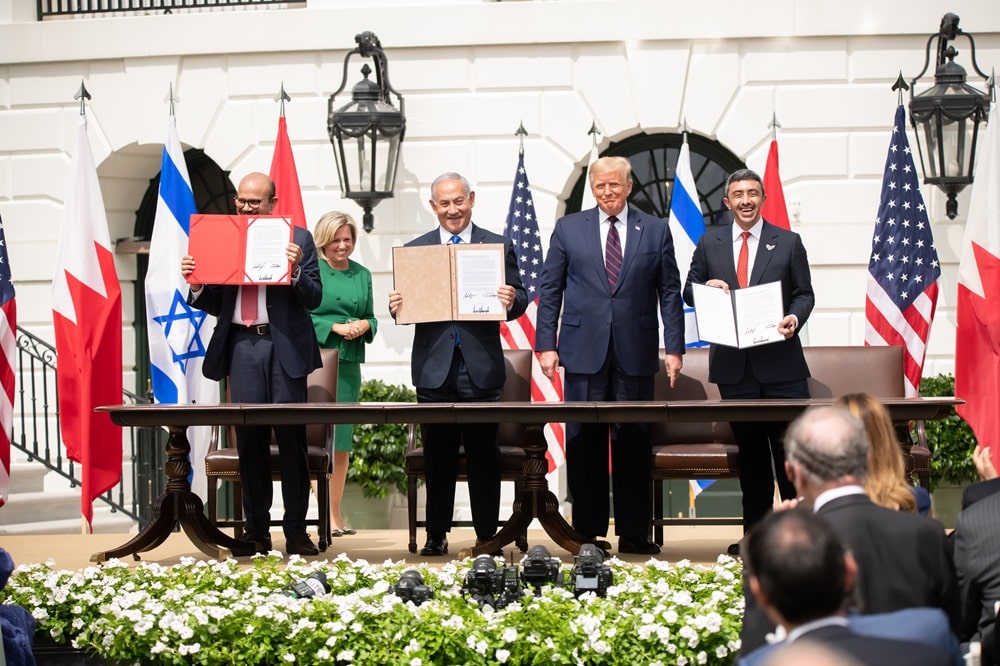
Will the PA Return to Gaza?
In order to understand the relations between the Palestinian Authority and Gaza, we need to go back to 2007, when Hamas deposed Fatah and seized control of Gaza in a series of violent clashes. Until that point, the PA had a bureaucratic apparatus set up in Gaza with its own officials. “Until today the PA claims it still has 18 thousand civil servants and 18 thousand security personnel in the Gaza Strip. In other words – over 30 thousand people that have remained in their positions, even under Hamas rule”.
Is this true?
“It’s unclear, and it is highly unlikely in the case of the security apparatus. Hamas did keep some Fatah members in professional positions withing Gaza’s civil service, and in many cases chose to place its own people in executive positions alone. However, it remains unclear how many Fatah members have actually remained in Gaza after Hamas’ takeover”.
And now the PA is planning its return to Gaza?
“As far as the Palestinian Authority is concerned – and this it had stated even before the outbreak of the war – it is still the boss in Gaza. The Authority views its demand for a return to control in Gaza as only natural, thus it endeavored dozens of reconciliation attempts with Hamas. Two months ago, the Authority sent the Americans a 101-page document, in which it claims that it is the governing body of Gaza and that it has a plan for the reinstatement of its governance, such as reopening the hospitals, schools, government offices, and more. The Americans – it must be said – were not convinced”.
What is the position of the Arab states?
“Here things start getting complicated. Naturally the Egyptians, Jordanians and Saudis all publicly support the control of the PA in Gaza and Judea and Samaria, as it serves the two-state vision. But under the surface the Egyptians and Saudis have a lot of criticism against the Authority and they are appalled by the corruption and its dysfunction and from the fact that Abu Mazen hasn’t held elections for the chairmanship of the Authority and for its parliament for nearly 20 years. But this is under the surface, and the Saudis still continue to transfer broad financial aid to the Palestinian Authority. Only recently Palestinian Prime Minister Mohammad Mustafa met with the Saudi ambassador to Jodan, who transferred him aid money”.
In other words – the Arab world does not publicly criticize the PA?
“Public criticism of the Palestinian Authority is heard mainly in the Emirates. Two months ago, a proposal was made according to which the UAE undertakes financial support to the Authority, but the UAE rejected the suggestion out of hand, because they object to Abu Mazen heading the PA. This is why in an interview to The New York Times, Palestinian politician Mohammad Dahlan proclaimed ‘no Abbas and no Hamas’. I’ve encountered this position on part of many sources in the Authority even before Dahlan. There are other sources that would like to see a governing body in Gaza as well as Judea and Samaria that is neither Abu Mazen nor Hamas”.

Abu Mazen’s Condition: Hamas Acknowledges the Oslo Accords
What is the position of the Sunni Arab states on Gaza?
“Egypt, Jordan and Saudia view Hamas as a terror organization. The UAE has plans for Gaza which designates as Chairman of the PA Dr. Salam Fayyad, former PM of the Authority under Abu Mazen more than a decade ago. Dr. Fayyad is not a member of Fatah or the PLO. He is an expert on economics. The moderate Arab world and the US wish to see him as head of the Palestinian Authority. However, Qatar has a long-standing vision of political Islam, which they hoped Hamas would realize. Already in 2019, the Qataris met with Hamas in Judea and Samaria and offered to fund them in the elections, but they would rather see Khaled Mashal as head of Hamas, They don’t favor Sinwar, who had detested and insulted them. There was no love lost between them– Qatar and Sinwar. Some claim that now the Qataris have the opportunity to try and reassert their influence with the Hamas leadership that resides overseas, but the Iranian’s and Hezbollah also want to maintain close ties with Hamas”.
What kind of relations would Qatar have between Hamas and the PA?
“Qatar would like to see Hamas as part of the PLO, as it would legitimize Hamas, and make it less militant. But Abu Mazen set a condition for this: if you want to be part of the PLO – you have to accept the Oslo Accords, which means the implied recognition in the State of Israel. Meanwhile, Hamas is led by a council in lieu of a new leader, and it there appears to be a power struggle between the more moderate camp – the Muslim Brotherhood supported by Qatar – and the militant camp, which is close to Iran”.
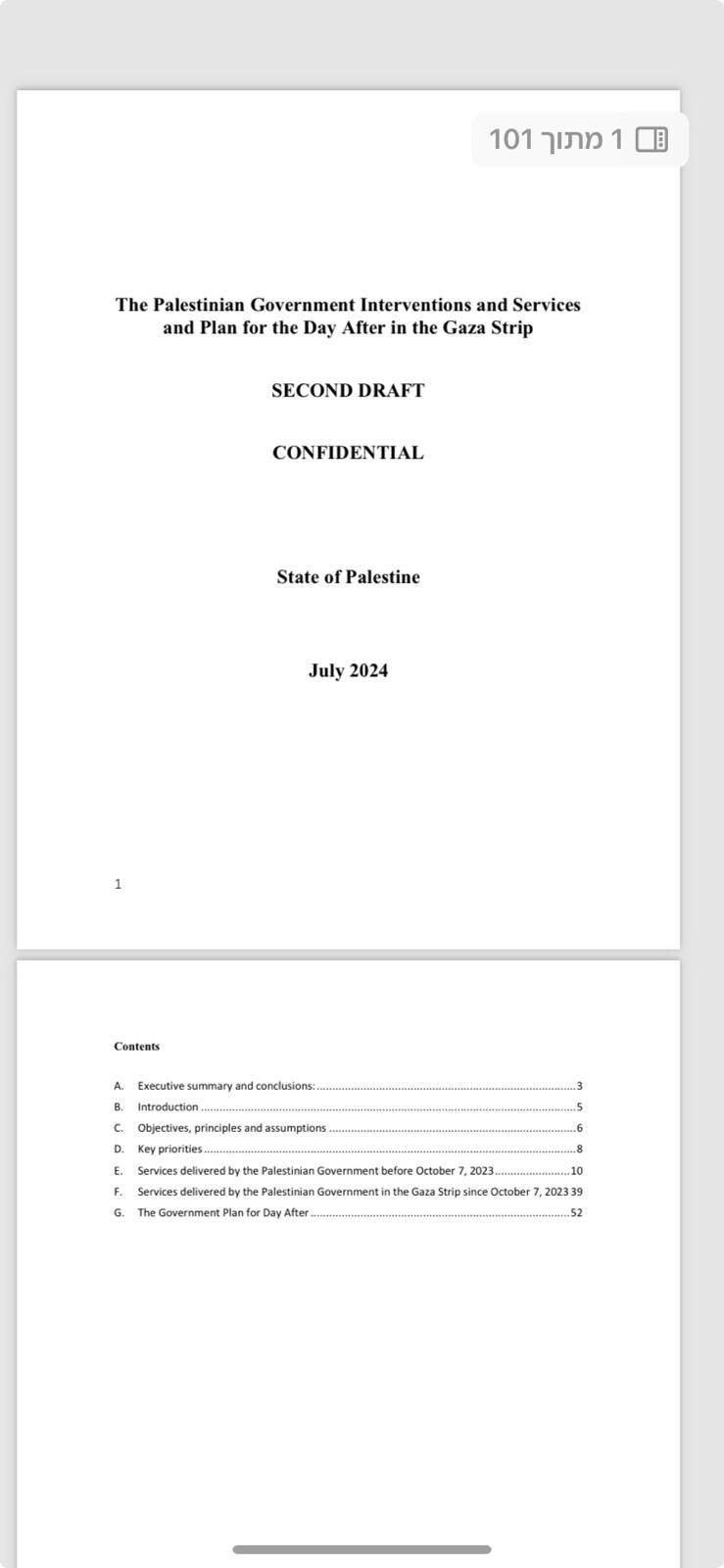
In April you wrote that Mohammad Dahlan – the Fata leader living in Abu Dabi – is promoting a plan for leadership of the Gaza Strip, with the backing of a Arab Sunni force. Is this still true?
“Yes, he’s still working on it. But he also understands that forming the Arab force he’s talking about can only happen as part of a diplomatic process, and he understands that for the time being, Israel is not seeking any diplomatic arrangement, He understands that he’ll be forced to find a solution in collaboration with the Palestinian Authority. According to my sources, Dahlan’s people have recently spoke on numerous occasions with Abu Mazen’s people to find a path to reconciliation and unite the forces in Gaza,. Also Israeli Defense Minister Galant’s ‘Security Island Plan’ for concentrating Gaza’s population in ‘humanitarian bubbles’ with a civil apparatus for each such bubble comprising locals that will be armed with light arms – is very acceptable on part of the Emiratis”.



